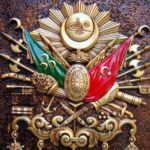Almost 1000 years ago, Turkish tribes started settling in Anatolia, beginning the formation of the Turkish state. How did it happen? Many jump to quick conclusions and simplify the matter pointing to the Byzantine defeat at Manzikert in 1071. The reality is different: in the aftermath of the battle, Emperor Romanos Diogenes reached a peace agreement under which the Turkish Seljuk sultan was handsomely rewarded with money while the Byzantine Empire did not suffer territorial loss.
The Byzantine elite in Constantinople, however, decided to unseat Romanos and not to adhere to the agreement. In the subsequent squabble over the throne, one of the competing factions would hire a relative of the Turkish sultan, Suleiman to increase its chances to seize the throne. As the Byzantine elite rushed to Constantinople, Suleiman was left with his troops to control one of the biggest Byzantine cities of Anatolia, Nicaea. The resulting Sultanate of Rum, the first presence of the Turkish people in Anatolia, was born not by conquest, but by the shortsightedness of the Byzantine ruling class.
The Sultanate of Rum would then at times fight the Byzantine state, at times become vassal of it, as the Byzantine leadership hoped to integrate the Turkish people and turn them into Orthodox Byzantines. It did not happen.
As the Byzantine Empire continued its decline, the ruling dynasty of the Sultanate of Rum, the Seljuks, would lose the leadership over the Turkish people in Anatolia to the Ottoman dynasty. Ottomans would go on to forge a large empire, including the conquest of Constantinople itself from the Byzantines and the extinction of the latter’s state a few centuries later. From mercenaries of the Byzantine Greeks, Turks became their rulers.
By 2017, open borders immigration policies have welcomed in Germany 2.7 million Turks, and approximately 400,000 in the Netherlands; the hope of the German and Dutch ruling class has been to turn them into law-abiding citizens of the adoptive countries. Turkish President Recep Tayyip Erdoğan has different plans however and, using the influence of embassies and consulates1)Turkish expats told to spy on Erdogan critics in German schools, telegraph.co.uk 24 February 2017., cultural centers or mosques2)‘I stand behind Erdogan’: An afternoon in Cologne’s Turkish center, dw.com 19 july 2016, he is working hard to ensure that Turkish immigrants in Europe remain loyal to their home country3)‘You Are Part of Germany, But Also Part of Our Great Turkey’, spiegel.de 28 February 2011.
In the latest case of the Turkish-European relations, Turkish immigrants in Europe have become an instrument of Turkish foreign policy to pressure European governments into compliance with Erdoğan’s demands. His latest ploy is a referendum to increase the power of his presidency and he had sent Foreign Minister Mevlüt Çavuşoğlu and Family Minister Fatma Betül Sayan Kaya to the Netherlands and Germany to rally support from expats for his reforms4)Dutch government blocks visit from Turkish minister, escalating diplomatic dispute, thestar.com 11 March 2017. As Germany repeatedly blocked the attempts of the Turkish ministers to address the Turkish people in Europe, Erdoğan smartly played the Nazi card against the Germans who are consumed with the guilt for their perpetration during the Second World War. A few days later, the two Turkish ministers were banned from entering the Netherlands for the same reason5)Netherlands revokes landing rights for Mevlut Cavusoglu, aljazeera.com 11 March 2017, prompting Erdoğan to make more use of the Nazi card to silence criticism from Europe of his policies.
Finally, he called for the Turkish masses in the two European countries to protest against the Dutch and German governments, and the Turkish masses have answered to the call of their Sultan. Of the many rallies held in favour of Erdoğan some were banned, in Austria and France6)Turkey rallies row: Germany and Netherlands harden stance, bbc.com 12 March 2017 and even in Sarajevo, Bosnia7)Pro-Erdogan Turks Hold Anti-EU Protest in Sarajevo, balkaninsight.com 13 March 2017. Chaotic protests happened in Rotterdam8)HUGE Crowd of Muslim Protesters Raise Turkish Flag in Rotterdam, Holland, youtube.com 13 March 2017 and Amsterdam9)Mobiele Eenheid veegt Plein 40 – 45 leeg met waterkanon, at5.nl 12 March 2017. Pro-Erdoğan newspapers in Turkey are sending a clear message to the Netherlands by comparing the numbers of Turkish immigrants in the country (400,000) to the small size of the Dutch army (48 000)10)Hollanda’nın nüfusu ne kadar?, yeniakit.com.tr 12 March 2017.
Just like the Byzantines could not turn Rumite Turks into Orthodox Christian subjects, European countries have failed to integrate the Turkish masses11)“I’m Turkish not Dutch,” says 17-year-old Sameh outside Turkish consulate in #Rotterdam, twitter.com 12 March 2017. While European politicians compete for parliamentary seats in Brussels and the other European capitals, Turkish immigrants in Europe pledge their allegiance to Erdoğan: will history repeat itself?
References
| 1. | ↑ | Turkish expats told to spy on Erdogan critics in German schools, telegraph.co.uk 24 February 2017. |
| 2. | ↑ | ‘I stand behind Erdogan’: An afternoon in Cologne’s Turkish center, dw.com 19 july 2016 |
| 3. | ↑ | ‘You Are Part of Germany, But Also Part of Our Great Turkey’, spiegel.de 28 February 2011 |
| 4. | ↑ | Dutch government blocks visit from Turkish minister, escalating diplomatic dispute, thestar.com 11 March 2017 |
| 5. | ↑ | Netherlands revokes landing rights for Mevlut Cavusoglu, aljazeera.com 11 March 2017 |
| 6. | ↑ | Turkey rallies row: Germany and Netherlands harden stance, bbc.com 12 March 2017 |
| 7. | ↑ | Pro-Erdogan Turks Hold Anti-EU Protest in Sarajevo, balkaninsight.com 13 March 2017 |
| 8. | ↑ | HUGE Crowd of Muslim Protesters Raise Turkish Flag in Rotterdam, Holland, youtube.com 13 March 2017 |
| 9. | ↑ | Mobiele Eenheid veegt Plein 40 – 45 leeg met waterkanon, at5.nl 12 March 2017 |
| 10. | ↑ | Hollanda’nın nüfusu ne kadar?, yeniakit.com.tr 12 March 2017 |
| 11. | ↑ | “I’m Turkish not Dutch,” says 17-year-old Sameh outside Turkish consulate in #Rotterdam, twitter.com 12 March 2017 |




